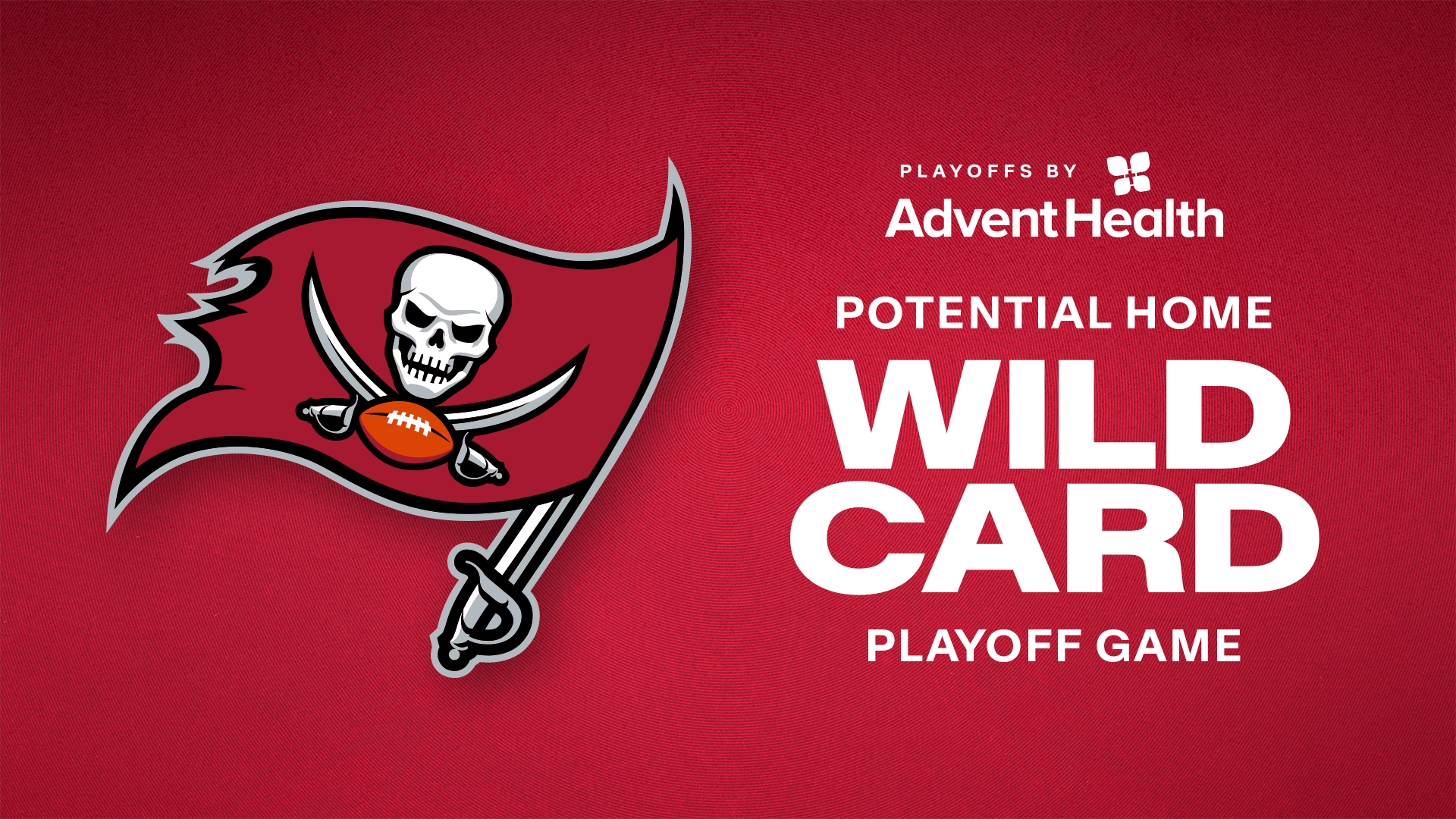Offensive Coordinator Les Steckel is impressed with the harmony among Buccaneer coaches and players
Les Steckel loves evenness.
His favorite stat from last year's Super Bowl, in which he coordinated the offense of the Tennessee Titans? The Titan offense passed and ran the ball exactly the same number of times.
Tennessee didn't win Super Bowl XXXIV, falling just short in a thrilling loss to the St. Louis Rams. But they made it to the big game with an admirable balance, succeeding as a whole on offense, defense and special teams. The Titan offense finished 13th in the league in total yardage – 13th in rushing and 13th in passing.
So when Steckel landed in Tampa less than a month after the Super Bowl, it wasn't as if the team had imported Don 'Air' Coryell or the Rams' Mike Martz. Steckel got the position vacated by Mike Shula because his philosophy matched up with that of Buccaneers Head Coach Tony Dungy.
Balance. Control. Fundamentals.
"The game is played with certain strategies, and that's why Coach Dungy and I really hit it off in my interview process," said Steckel. "His approach is the same as my approach, and I think our philosophy is sound. It has a certain wisdom to it. I've been on teams where we were one of the top passing teams in the league year in and year out. But our defense was ranked dead last in the league. We boasted about the high numbers and the points and all that, but we were 8-8."
Tampa Bay went 11-5 last year, which means the team will have to win its last two games to match that mark in 2000. But, should they make the playoffs, they will have to be considered a force to be reckoned with, because the Bucs have succeeded on the bottom line. Tampa Bay is seventh in the league in scoring and fifth in points allowed. No other team in the league is in the top seven in both categories.
Martz' Rams, for instance, lead the league in scoring but are dead last in points allowed. As the offensive coordinator last year and now the head coach in St. Louis, Martz has molded the St. Louis offense into one of the most explosive units in league history. But even such a Coryell-esque coach can appreciate the Dungy-Steckel approach.
In his conference call on Wednesday, Martz called the Bucs' approach 'conservative', but did so admiringly. He praised Tampa Bay's ability to do 'whatever is necessary to win.'
Steckel, in turn, was not insulted by that 'conservative' tag. To him, the team's 16-13 win in Miami last Sunday was as attractive as their 41-0 demolishment of the Chicago Bears in Week Two. Even though the higher-scoring game occurred earlier in the season, Steckel believes his squad is making steady progress.
"I think I'm pleased but never satisfied, because there's always a driving force inside of you that wants to make a team better," he said. "I'm really encouraged by the harmony of the players and the staff. We've been through some adversity, and when you advance through adversity it does more than build character. It solidifies a team's unity and I think that has been proven over the last seven weeks, when you win six of the last seven."
Steckel should be pleased. While the Bucs' impressive defense has actually slipped a bit in most statistical categories from last year – though not in the all-important points-allowed column – Tampa Bay's offense has shown improvement across the board. In some cases, that improvement is dramatic.
The 2000 Buccaneers have scored 115 more points through 14 weeks than the 1999 squad did. They've scored 15 more touchdowns and kicked three more field goals. They've posted more first downs, more yards, more rushing yards, more yards per play, more yards per rush and more yards per pass attempt. Has this striking improvement escaped you? Check out the raw numbers in the following chart.
| Category | 2000 | 1999 | Difference |
| Points | 336 | 221 | +115 |
| Touchdowns | 37 | 22 | +15 |
| Field Goals | 25 | 22 | +3 |
| First Downs/Game | 16.6 | 15.1 | +1.5 |
| Yards/Game | 280.8 | 261.6 | +19.2 |
| Yards/Play | 4.8 | 4.3 | +0.5 |
| Rushing Yards/Play | 128.1 | 107.8 | +20.3 |
| Yards/Rush | 4.1 | 3.6 | +0.5 |
| Yards/Pass Attempt | 6.60 | 6.26 | +0.34 |
You've probably already heard that the Buccaneers have broken the team record for points allowed, which was previously 335 points, set in 1984. The franchise marks for touchdowns (40) and field goals (27) and yards per rush (4.11) are also well within reach.
How have the 2000 Buccaneers' accomplished this drastic turnaround?
"I look at three things that are really important," said Steckel.
"First of all, you've got to score more points than your opponent, so scoring points is important, and we've certainly had help from our defense and special teams along the way. And that makes us a complete team, which is something Coach Dungy has preached the entire season."
The Bucs' offense has, indeed, seen the benefit of a turnover-producing defense and an occasionally potent special teams, but that shouldn't detract from what it has accomplished. Tampa Bay has seven return touchdowns this year, ranging from a blocked field goal runback to a variety of interception returns. Which team led the league in 1999 with 11 return touchdowns? Martz' high-powered Rams, of course.
"Two is turnover ratio," continued Steckel. "We're first in the NFC thanks to the defense. Give credit to the offensive players as well for understanding what, to me, is the most important statistic. If you don't turn the ball over, you're going to win.
"Then, lastly, because of the great defense that we have – plus I really admire Coach Marciano and the special teams – our job is to stay on the field and keep the rest of those guys off. I know some people say it's a meaningless stat, but time-of-possession…I don't know what we are, but I know every week when we go in, that's my objective when calling plays, to recognize that we want to bleed the clock, keep our team on the field and theirs off and go from there."
The Bucs' time-of-possession is actually slightly below the even mark, at 29:48, but Steckel has succeeded magnificently in another area he emphasizes. After turning Tennessee into one of the league's most efficient teams inside the 20, he has done the same in Tampa in a very short period of time.
Last year, the Buccaneers were dead last in the NFL in touchdown percentage in what is commonly called the 'red zone.' Upon his arrival, Steckel immediately convinced his new team to call it the 'Green Zone' instead, then made sure the Bucs knew how important that area of the field is. Now the Bucs are fourth in the league in that category and are second in overall scoring percentage on trips inside the 20. Tampa Bay has converted 35 of its 38 Green Zone trips into some kind of score.
"I learned this the first week I coached," said Steckel. "The young coach that I was, I was told that I had to emphasize something. Being a coordinator for a few years, I looked over what's really important. Obviously, scoring points, and where is it toughest to score points? Down here in the Green Zone. That's why we call it that – you've got to keep going. It's not the 'red' zone.
"We've really emphasized that. Our players have bought into it, and I've heard some of them say that, in the huddle, when we cross the 30, they tell one another, 'We're at the 30.' When we get to the 22, they tell one another. They say they do that. Everyone's conscious of that, and fortunately, we've scored every time but three. And, really, two of those three should not have occurred."
Twice the Bucs have failed to put a Green Zone possession into the end zone as they were running out the clock at the end of the game. It's a perfectly reasonable blemish on the team mark in that category, but Steckel values precision, and he hates to see that mark sullied.
Steckel also values balance, perhaps more than any other factor on the field. In that way, he has fit very well into Tony Dungy's system. And in that way, he has molded the Bucs' offense into one of the most effective groups in franchise history.
























